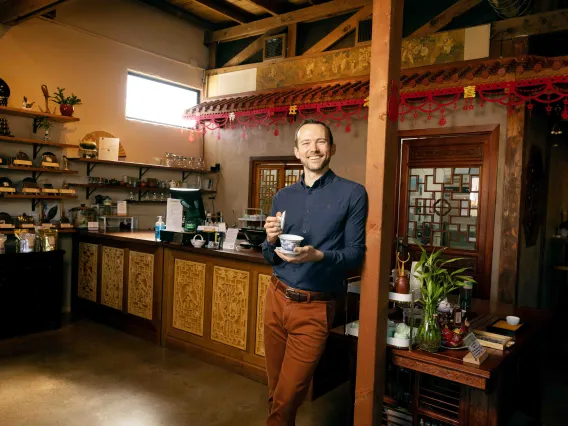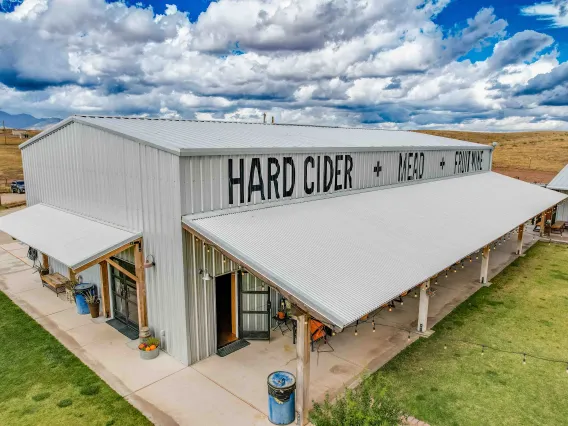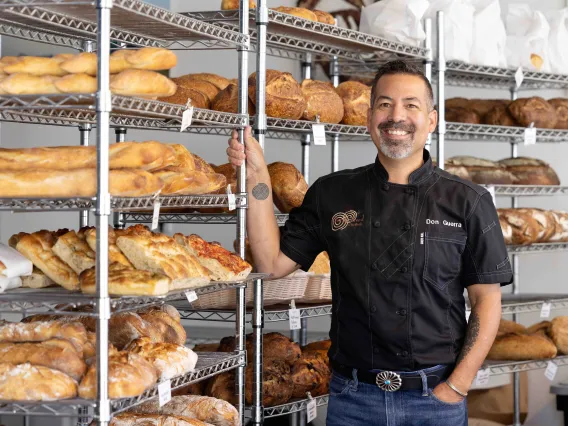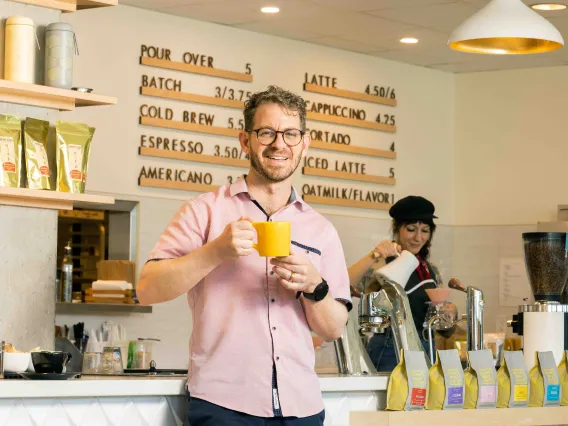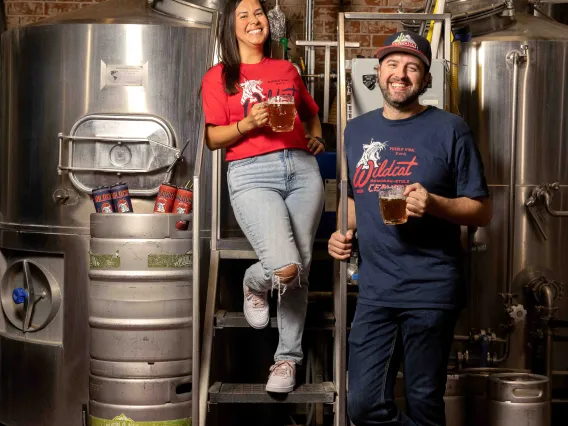The Beans Speak
A cocoa profiler and a chocolatier make a formidable team.
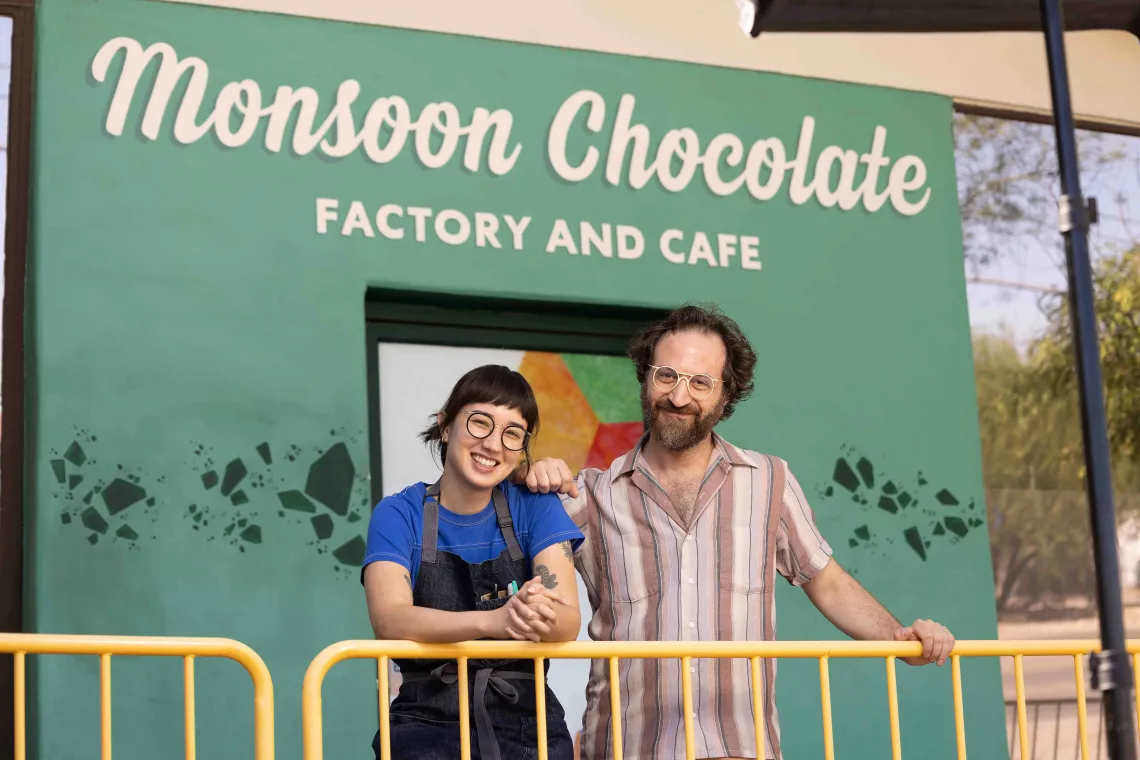
Athene Kline and Adam Krantz
Chris Richards
Cocoa nib horchata and Sonoran sea salt dark chocolate, both boasting regional Southwestern flavors, are just two of the bon bons in Monsoon Chocolate’s Catalina collection, named for Tucson’s northeast mountain range.
Another, the prickly pear caramel, looking itself like a purple mountain with concentric ridges and white swirls, bursts open in the mouth with a surprise fruity undertone in subtle contrast to the rich bitterness of cocoa. It’s a delicate composition one might call a work of art.
“We create these little magic moments that taste good — flavors and textures for people to enjoy,” says Adam Krantz, founder and CEO of Monsoon Chocolate, a popular Tucson chocolate factory.
And then there’s the name — Monsoon, a thunderous desert storm most Tucsonans relish — that Krantz came to after brainstorming everything he loves about Tucson.
“It seemed like a poetic representation of the flavor experience of eating really good chocolate: It’s this thing that just kind of takes over — you have a moment to pause and recognize the power of it, and then it disappears,” he says.
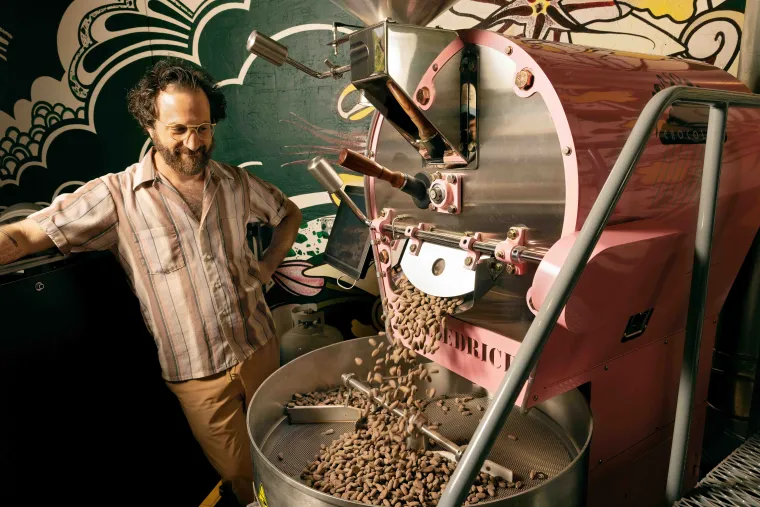
Krantz saw the opportunity to bring the "bean-to-bar" craft chocolate movement to Tucson.
Chris Richards
Athene Kline, co-owner of and chocolatier at Monsoon Chocolate, likens indulging in their bon bons to the respite a monsoon offers from the oppressive summer heat, providing a break from the stresses of daily life.
Kline and Krantz have been working together since the shop opened in 2018. Both giggle at the memory of their opening day. “It was bonkers,” Kline says — taking orders, talking to customers, doing a lot of food runs.
Krantz attended the University of Arizona as a theater and music theory major from 1999-2002, in what he calls a profound experience, “a catalyst for all of the changes that were going to come in my life.” He was young and certain of his path but ended up leaving the university early after finding that he was at odds with the theater department. “It really pushed me in a totally different direction, which is a big part of where I am now,” he says.
He began working in the Tucson food industry and then continued in Portland, forming connections and networks in the specialty chocolate industry. After a few startup fails, Krantz says he just fell into the chocolate industry. “This thing happens where every time an entrepreneur fails, you get motivated to try again,” he says. “I've pursued many projects. A lot of them you could call failures, but I’ve learned along the way.”
With experience behind him, Krantz saw an opportunity to help create a different model for a chocolate company. “It’s called the ‘bean-to-bar chocolate’ or ‘craft chocolate’ movement,” he says. And to him, Tucson was the perfect place to begin his venture. “I felt like, if I don’t start this company in Tucson, eventually somebody else will.”
Enter Kline. Like Krantz, her journey into chocolate began with an educational detour. Initially a pre-med microbiology major, she left the university to follow her passion for creative arts. After dabbling in photography, she became a pastry chef in Tucson. Meanwhile, her husband introduced her to his good friend, Krantz, setting the stage for a well-balanced partnership. Soon, she became smitten with chocolate. “The more I learned about chocolate, the more curious and in love I became,” she says.
Kline, who makes the confections and bon bons, enjoys finding interesting taste combinations by mixing regional flavors with cacao — flavors like prickly pear, horchata, blue corn or hibiscus. She complements Krantz, who comes up with the profile of the cacao beans they source, determined by their chemical makeup. The partners also bring distinct points of view influenced by their diverse food heritage. “I grew up in Southern Germany, and I’m half Korean,” Kline says, “and Adam grew up in Marietta, Georgia, and is Jewish. So, there are some crossover flavors in foods. But there’s also a lot of differences,” she says.
Together, they listen to the beans. “They speak to us,” Krantz says. “Every single bean we source is just wildly different. It gets into genetics and the microclimate they come from.” One of their biggest challenges is the cost of making ethically sourced chocolate, a top priority. They understand their chocolate isn’t accessible to everyone but say if you are paying just a couple dollars for a chocolate bar then someone is being taken advantage of in the supply chain. “I would go as far as to say that any chocolate bar that costs less than $4 on the shelf falls into that category,” Krantz says.
Keeping costs down to serve the community is their focus for the future — and factory tours, taste testing and chocolate-making classes are coming soon.

